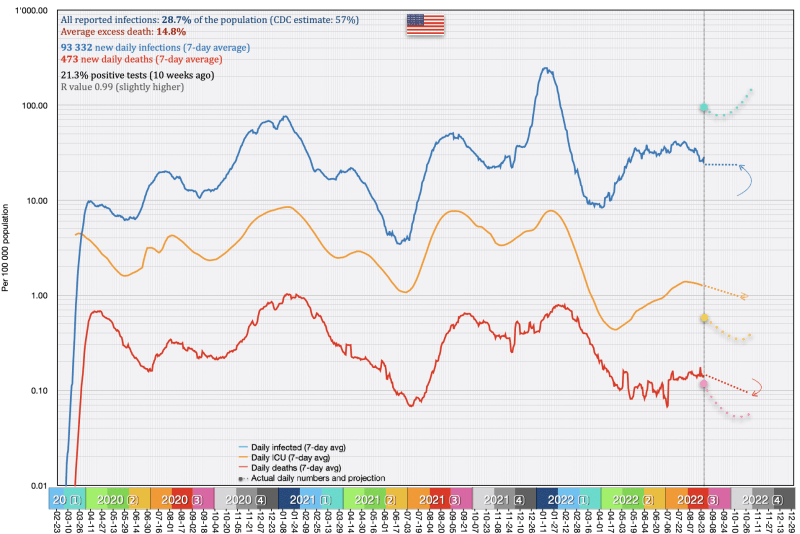 USA – 26 August
USA – 26 August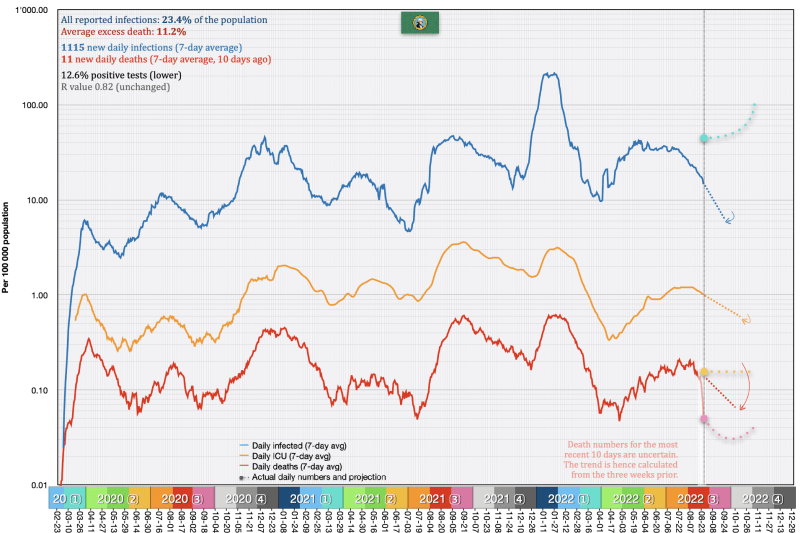 Washington State – 25 August
Washington State – 25 August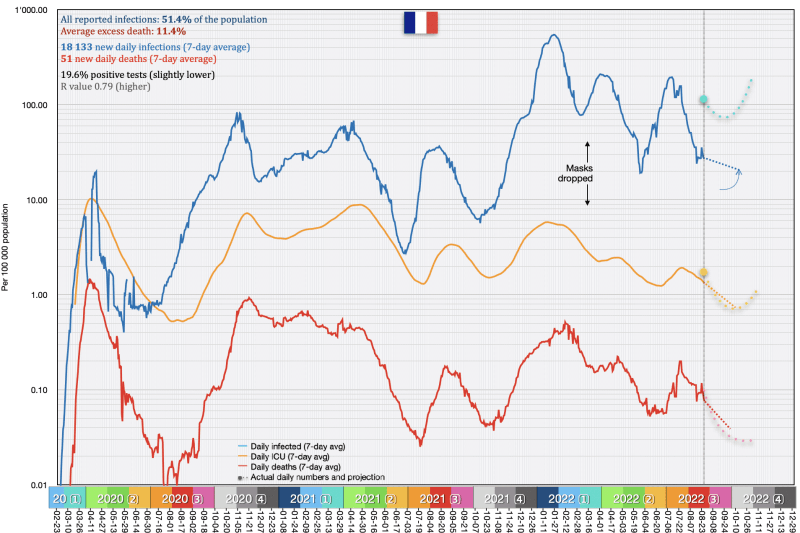 France – 26 August
France – 26 August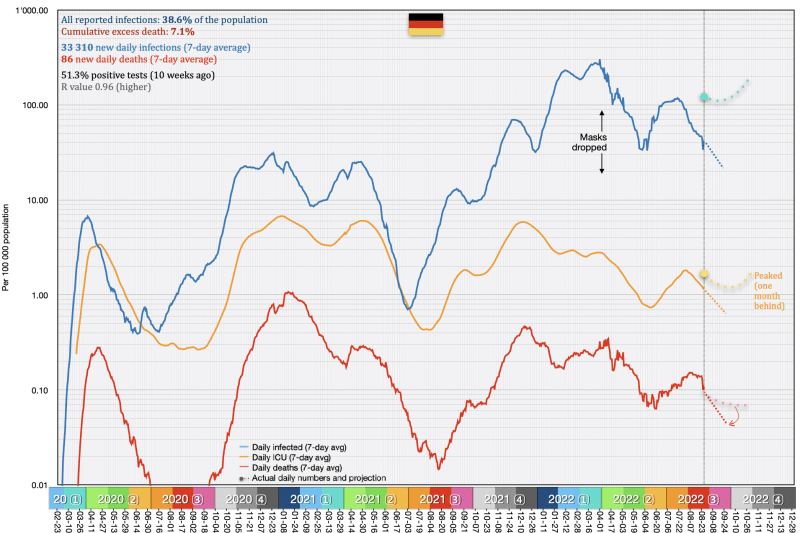 Germany – 26 August
Germany – 26 August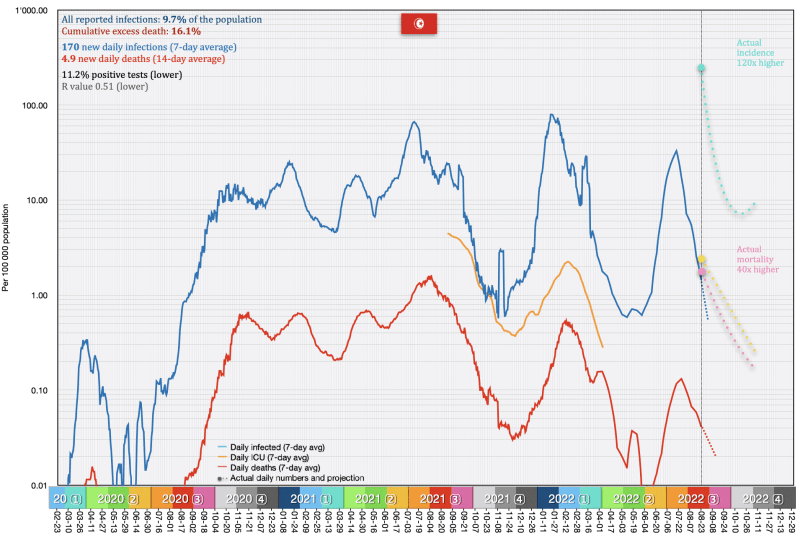 Tunisia – 22 August
Tunisia – 22 August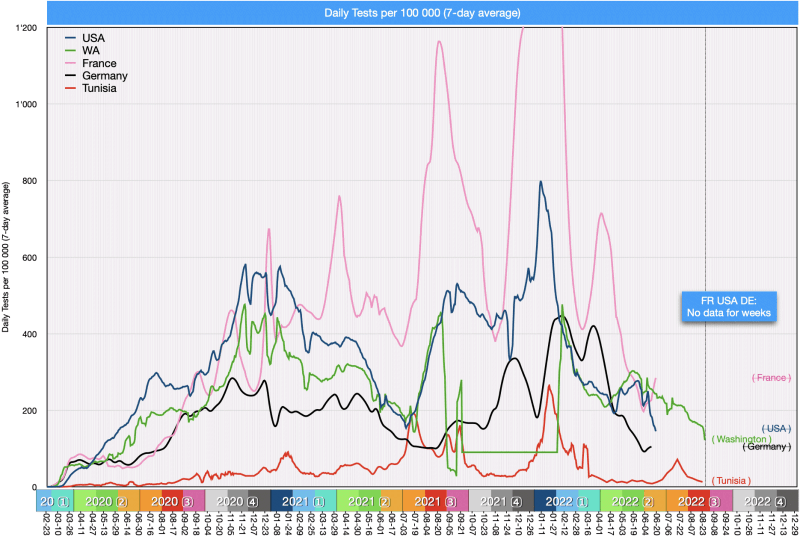 Testing Rates – 26 August
Testing Rates – 26 August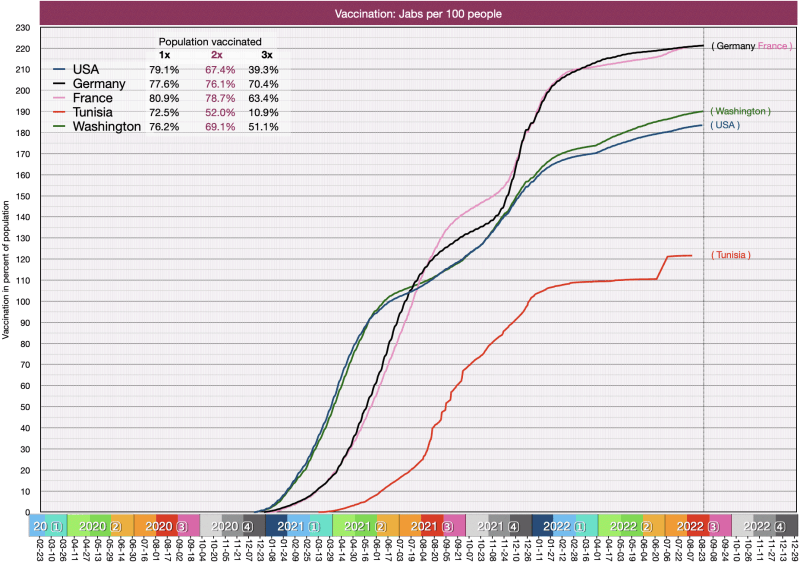 Vaccinations (Cumulative) – 26 August
Vaccinations (Cumulative) – 26 August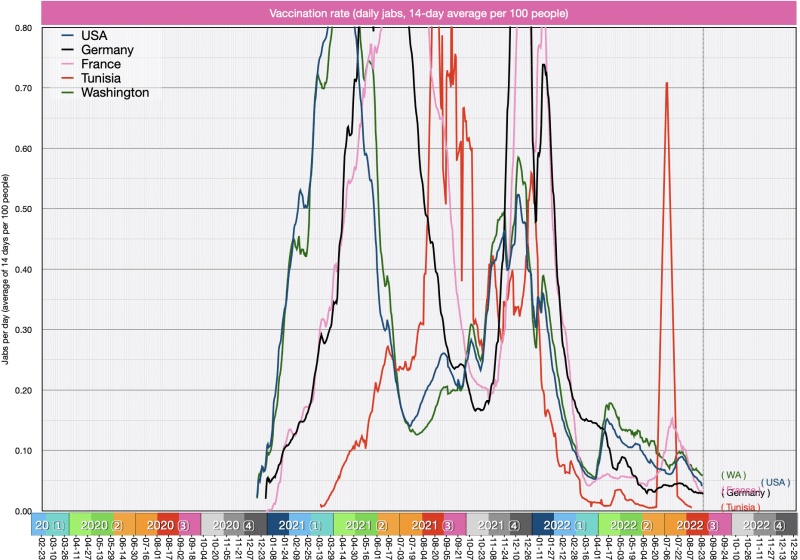 Vaccinations (jabs) per day – 26 August
Vaccinations (jabs) per day – 26 August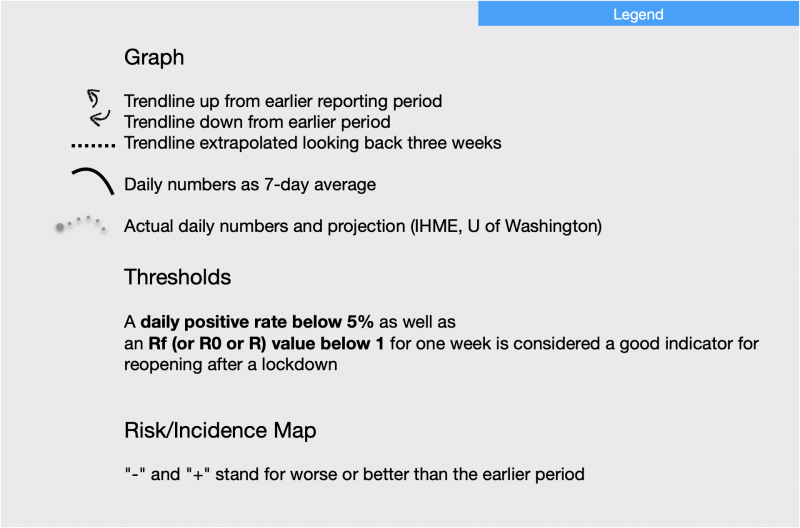 Legend
LegendIncidence Starting To Bottom Out
In Western Europe and the USA, incidences seem to come down more slowly
The R-values are also starting to inch closer to 1 again, that is, other than WA State, which is expected to lag behind the US trend, and Tunisia, which seems like a safe haven for the winter.
The projections and predictions are thus becoming true and the winter peak seems to be be building up.
Looking back on the three summers of pandemic data, it is striking is that mortality is currently higher than it was in the summer of 2021, when the vaccination rate was only half of today. In Western Europe, this discrepancy even extends to the summer of 2020, where mortality was even lower than in 2021, and that without a vaccine. This would go well with many Covid deaths occurring within the older population where vaccine protection is not as strong as among the young (and thus vaccine status is not as important). The higher mortality in the summer of 2022 is probably also owed to diminished protective measures compared to the prior two summers.
Tunisia shows a completely different mortality pattern, which is partially owed to its much younger population, partially to underreporting of Covid deaths in the underdeveloped rural areas and partially to a different weather-related behaviour, because, during the hot months, people might be found more inside that during the winter months.
| Daily Incidence | Daily ITU / ICU | Daily Deaths | Daily Pos. Rate | Cumulative Excess Death | Mortality Projection | |
|---|---|---|---|---|---|---|
| USA | 28.4 → | 1.3 ↘︎ | 0.144 ↘︎ | 21.3% | 14.8% | ↘︎↗︎ |
| WA State | 14.6 ↘︎ | 1.0 ↘︎ | 0.146 ↘︎ | 12.6% ↓ | 11.2% | ↘︎↗︎ |
| France | 27.0 ↘︎ | 1.3 ↘︎ | 0.076 ↘︎ | 19.6% ↘︎ | 11.4% | ↘︎→ |
| Germany | 40.1 ↘︎ | 1.1 ↘︎ | 0.103 ↘︎ | 51.3% | 07.1% | ↘︎→ |
| Tunisia | 01.4 ↓ | 0.041 ↓ | 11.2% ↓ | 16.1% | ↘︎ |
Germany's health minister, who is a doctor and a scientist, has pushed a package of new measures, most of which will be up to the discretion of individual states, to combat the spread of the coronavirus in the cooler winter months (dw). The package is essentially a renewal of the current laws that are about to expire.
Thus, masks on long-distance trains and planes will remain, and the federal states can impose masks inside businesses should numbers necessitate it.
This is good news for the 10% vulnerable population and I personally laud the German government to deviate from prevailing world view (and that of the European Union).
In French trains, for instance, masks are not required and should I take a train there, I would not take off my mask even once because the risk is just too big that while I am eating a sandwich, the person across from me has already infected me.
In German trains, however, that risk is (and will be) considerably lower and thus, drinking and eating is a possibility.